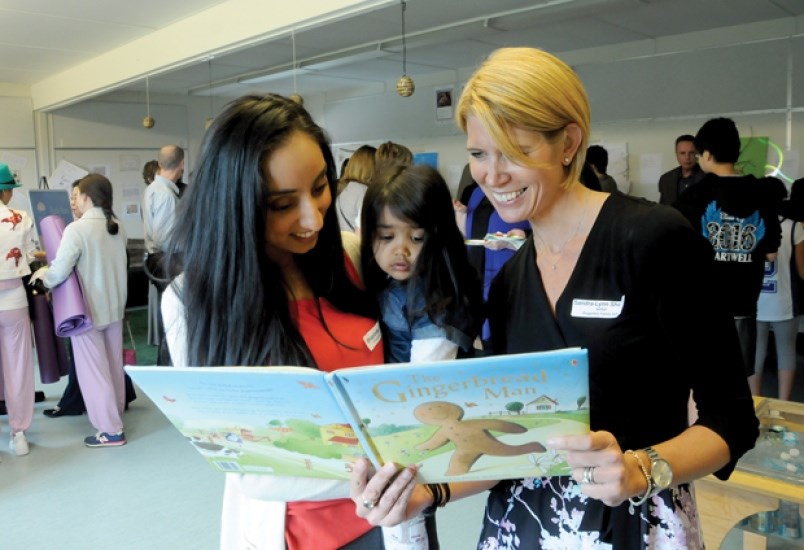Students entering kindergarten in one of the most affluent neighbourhoods in West Vancouver still face significant challenges when starting school – in part because many new immigrant families haven’t tapped into early childhood experiences most Canadian families take for granted.
About 43 per cent of students entering kindergarten who live in the British Properties are now considered “vulnerable” – meaning they don’t meet certain developmental benchmarks that could put them at risk for struggling in the classroom. That figure is more than four times what it was 10 years ago, when just 10 per cent of kindergarten kids were considered vulnerable.
Much of the change is connected to changing demographics, said Sandra-Lynn Shortall, district principal of early learning for the West Vancouver School District.
Many families are moving to the British Properties from countries like China and Iran just before school starts and children often haven’t experienced preschool environments like library reading, parent-tot drop-ins or Strong Start programs that help get kids ready for school, said Shortall. Some have only socialized with older cousins or siblings and aren’t used to playing with kids their own age. “On those rainy days when we say ‘go play in the woods’…a lot of these children haven’t experienced that before and it’s extremely overwhelming,” she said.
Some also have very limited experience of unstructured physical play, which can result in a lag in motor skills, she said. “Running, jumping, hopping on one foot, balancing … those are things that are new experiences for many children.”
Fortunately, Shortall told a West Vancouver crowd Tuesday morning, play-based programs designed to help new children and families can make a crucial difference. That’s one of the reasons the school district spearheaded the development of the Properties Family Hub, a community centre that draws from a variety of local organizations to provide programs that run out of a portable on the grounds of Chartwell school.
Including parents is key, said Shortall – especially when the local school system is often run very differently to what new families are used to.
“A lot of our families come from a very traditional school context,” she said. “That is very different from what happens here.”
The figures on vulnerability scores of young children as measured on an Early Development Index is just one of the pieces of information highlighted during the launch of the West Vancouver Community Foundation’s new Vital Signs report, which pulls together statistics from heath surveys, a recent Vancouver Foundation survey, Statistics Canada and local agencies to show a snapshot of the community.
Not surprisingly, West Vancouver does very well on many measures – residents live three years longer than average, the rate of charitable donation is higher than the national average and 94 per cent of residents feel safe walking at night.
But it’s a mistake to think an affluent community like West Vancouver has nobody who struggles, said Barbara McMillan, author of the report.
Some issues, like mental health, can affect everyone, she said.
Also, “There is a significant income gap in this community” between rich and poor, she said.
According to the report, more than 18 per cent of children in West Vancouver live in lower income families, 10 per cent of seniors are considered low income and more than 12 per cent of families are headed by single parents, the majority of them women.
Average rent of $1,673 for the 21 per cent of West Vancouver residents who are renters is significantly higher than the Metro Vancouver average of $1,144, according to the report. There is also about half the amount of social housing available for seniors, on a population basis, than in other areas of the Lower Mainland.
Affordability of home ownership and transportation gridlock remain key concerns for West Vancouver residents who responded to a survey conducted for the Vancouver Foundation in Metro Vancouver between June 14 and July 15 this year.
Nancy Farran, chairwoman of the community foundation board, said Tuesday the challenge will now be for the foundation and other agencies to use the information to improve the quality of life for West Vancouver residents. “It’s about belonging,” she told a breakfast crowd who showed up for the launch of the report Tuesday morning. “We are the lucky ones. I always ask myself, ‘Who isn’t here? What do we need to do as a community to make sure everyone has a place?’”



